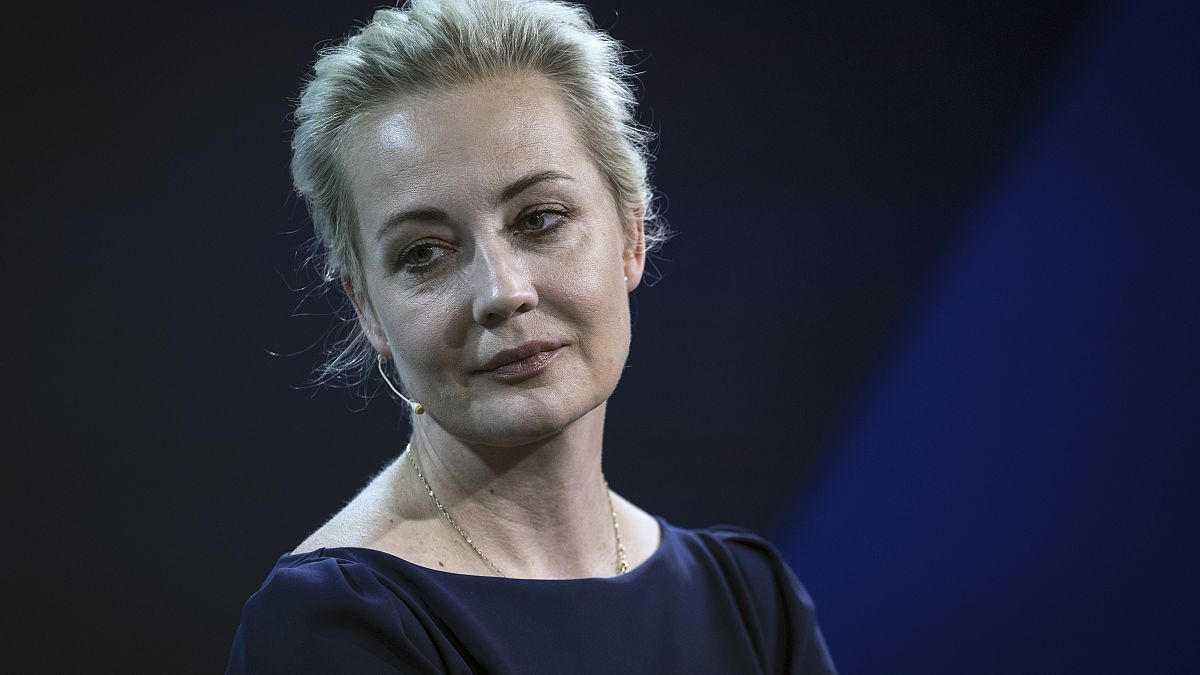The Kremlin’s crackdown on dissenters in Russia has intensified following the invasion of Ukraine in February 2022. Yulia Navalnaya, the widow of Russian opposition leader Alexei Navalny, has been issued an arrest warrant in absentia by a court in Russia. This ruling comes five months after Navalny’s death in a Russian Arctic penal colony, with Navalnaya publicly holding President Vladimir Putin responsible for her husband’s death. Russian authorities claim Navalny became ill after a walk but have not provided further details, denying any involvement in his poisoning and death. Navalnaya is currently living abroad with her two children, urging supporters to continue their campaign against Putin and calling him a murderer and war criminal.
Navalny, who was Putin’s strongest political adversary, died while serving a 19-year sentence on extremism charges that he believed were politically motivated. He had returned to Moscow in January 2021 from Germany, where he had been recovering from a nerve agent poisoning in 2020 that he attributed to the Kremlin. Navalnaya’s arrest warrant further highlights the Russian regime’s crackdown on dissent and opposition voices, as well as the ongoing suppression of independent journalists and ordinary Russians critical of the government. The court’s decision to arrest Navalnaya on alleged involvement in an extremist group underscores the lengths to which the Kremlin is willing to go to silence opposition and maintain control over the narrative.
Despite facing threats and intimidation from Russian authorities, Navalnaya remains vocal in her criticism of Putin and the regime. She has called for Putin to be held accountable and to face justice in Russia, in the same manner that she believes her husband was unjustly persecuted. Navalnaya’s defiance and courage in the face of adversity have inspired supporters to continue their fight for democracy and human rights in Russia. Her message to not be distracted by the arrest warrant but to focus on the campaign against Putin reflects the resilience of the opposition movement and the determination of those seeking change in the country.
The ongoing repression of dissent in Russia under Putin’s leadership has drawn condemnation from the international community, with many countries and organizations condemning the crackdown on freedom of speech and political opposition. The targeting of Navalnaya and other opposition figures has raised concerns about the shrinking space for civil society and independent voices in Russia. As the Kremlin escalates its persecution of dissenters, it is essential for the global community to stand in solidarity with those facing repression and to continue advocating for human rights and democracy in Russia. Navalnaya’s arrest warrant serves as a reminder of the dangers faced by those who challenge authoritarian regimes and the importance of supporting their struggle for freedom and justice.
In conclusion, Yulia Navalnaya’s arrest warrant is a clear sign of the Kremlin’s escalating crackdown on dissent and political opposition in Russia. Despite facing threats and intimidation, Navalnaya remains defiant in her quest for justice for her late husband and in her campaign against Putin. Her courage and determination serve as an inspiration to others fighting for democracy and human rights in Russia. The international community must continue to condemn the repression of dissent in Russia and support those who are working towards a more open and free society. As Navalnaya continues to speak out against Putin and the regime, it is crucial for individuals and organizations around the world to stand up for the rights of those facing persecution and to advocate for a more just and equitable future for all.










